WA hop farmers, brewers contend with trade war, extra visa scrutiny
Published in Business News
YAKIMA, Washington — Late August marked the start of the Yakima Valley's six-week blitz to harvest fields of hop plants bound for breweries.
With the citric scent of Centennial hops hanging in the air, Jessica Riel, a fourth-generation farmer at Double ‘R’ Hop Ranches, looked on as her employees unloaded long bines — stems similar to vines — from the backs of white trucks. Their gloved hands guided the plants onto the picking machine for processing.
With a dearth of local workers, Riel has turned to seasonal foreign labor to fill the gaps and complete the yearly harvest. Out of her current workforce of about 100 employees, 42 arrived from Mexico last month.
The goal is always to recruit local employees, and, over the years, we've seen the number of available local workers decline," Riel said.
Bringing in labor from other countries isn’t easy either, and it’s not the only issue this year. With President Donald Trump back in office for a second term, the beer industry is facing new and preexisting hurdles tied to immigration and trade. The farmers, brewers, manufacturers and distributors that work to deliver bottles of ale to consumers in Washington and beyond are watching repercussions from foreign policy fights trickle down to their businesses.
The Trump administration is cracking down on illegal immigration — and purportedly causing visa delays for some seasonal workers coming to the U.S. through the H-2A program, a legal process that temporarily permits foreigners into the country to work for American employers in the agriculture industry. That's on top of longstanding headaches related to the program that employers would like to see resolved.
Fluctuating U.S. trade deals and tariffs are also complicating brewers' approaches to exports and imports.
"The reality of the situation in Washington (D.C.) right now is that this administration is trying to reset global trade," including relationships with neighbors Mexico and Canada, said Brian Crawford, president and CEO of the Beer Institute, the beer industry's trade association. "We're all just collateral damage."
The beer industry is a global affair. The U.S. produced the largest share of the world's hops in 2023, followed by Germany, the Czech Republic and China, the trade association Hop Growers of America found in its 2024 report.
Countries that received the most exports of U.S. hops in 2023 included Belgium-Luxembourg, Germany, Canada and Brazil. Meanwhile, that year, the U.S. mainly imported hops from Germany, New Zealand, Australia and the U.K.
The Pacific Northwest produces the majority of U.S. hops, according to Hop Growers of America, with Washington state making up 74% of the region's production in 2023.
The state's beer industry is responsible for more than 57,000 jobs, including over 1,400 agriculture jobs, and a total economic output of $12.4 billion, according to the Beer Institute. Nationwide, those numbers jump to 2.4 million jobs — almost 43,000 agriculture jobs among them — and an economic output of $471 billion.
At the Beer Institute, "what our members are saying is, we just need certainty," Crawford said. "These guys are making humongous investments, and they don't know exactly what the rules of the road are."
For now, despite the lingering questions, business owners are pushing forward.
"We have to be adaptable," Riel said. "Every day, there's something new coming at us, whether it's weather-related or labor-related, regulation-related."
'Cost is pretty significant'
Riel's farm has relied on the H-2A program since 2015. That year, Riel left her software industry job in the Seattle area to return to Double ‘R’ Hop Ranches — a family business started by her great-grandfather, Willie Riel, in 1945. The younger Riel was born and raised in Yakima.
As the farm’s co-owner, she helped implement the program for temporary agricultural workers.
"We have quite a few of those men that have been coming on the H-2A program every year since 2015," she said in late August at the farm in Harrah, which is located about 20 miles south of Yakima.
Washington is considered one of the top five states dependent on H-2A workers, with close to 36,000 seasonal positions in the state’s agriculture industry allocated to those laborers in fiscal 2023, according to the Migration Dialogue project by the University of California, Davis.
Before the COVID-19 pandemic hit, the seasonal employees at Double ‘R’ Hop Ranches worked from April through mid-October. The viral outbreak caused a downturn in the hops industry, Riel said, so the foreign laborers now adhere to a varied schedule.
They first come to Harrah, Yakima County, in the spring then return to their home countries for a summer break. They migrate back in August for the hops harvest.
Riel expected that, in the near future, her business will need its employees for the full six-month period again.
"We are seeing great improvement in the hop industry," she said. "I expect, next year, we'll be moving back to that method of more of like a 50/50: half the time here in Yakima with us, half the time back home."
This year, most of her seasonal laborers began their harvest jobs Aug. 11. However, four couldn't start work until the last weekend of the month due to increased administrative processing, Riel said.
"What we've seen so far this year with the new administration is there have been some additional admin holds on visas when they're being issued," she said. "But nothing that has been a detriment to our business. We've still been able to get everybody here."
The U.S. State Department is the federal agency that issues visas to approved H-2A workers.
"In every case, we will take the time necessary to ensure an applicant does not pose a risk to the safety and security of the United States and that he or she has credibly established his or her eligibility for the visa sought," a department spokesperson said in a statement.
Those extra hands are crucial to Riel's farming operation. Because Double ‘R’ Hop Ranches is relatively far away from larger towns in the Yakima Valley, it doesn’t have the same access to local workers that centrally located farms have, Riel said.
Instead, the H-2A program provides the family business with workers, though it's "always been very challenging to navigate and difficult for growers in terms of cost and just facilitation of all of the documents," Riel said.
Looking forward, she hopes the program can be streamlined and made easier for farms of all sizes and scales to use.
"It's very expensive, so, if you're not a large producer with a big budget, it's very challenging to afford being able to utilize the program," Riel said.
Ryan Hopkins, CEO of supplier Yakima Chief Hops, said many of his growers also benefit from the H-2A program because there isn't enough domestic labor available to meet their needs.
Still, growers "have had challenges with some of the extra effort that it takes to bring the people here," he said. "The cost is pretty significant."
Republican U.S. Rep. Dan Newhouse wants to bring about change through his Farm Workforce Modernization Act, a bipartisan bill reintroduced in May that would bring reforms to the H-2A program.
The proposal includes a program for agricultural workers and select family members to gain legal status through their jobs, the creation of a mandatory national E-Verify system for the agriculture industry to replace today’s largely voluntary system, and a boost to the number of green cards available for employer use.
At present, the pathway to a green card is arduous for an H-2A worker because that type of visa is extended to non-immigrants on a temporary basis. However, an employer can offer permanent job opportunities and sponsor a green card through different visa categories.
Newhouse, who is a Yakima Valley hops farmer himself, has tried to propel the legislation forward for years, but to no avail — yet. As the Trump administration stymies illegal immigration, Newhouse believes the time for the bill's success is approaching.
"I think we can say that the crisis at the border is done," Newhouse said at a roundtable in Yakima last month. "Finally, we're at a point where people can consider making some needed improvements to this very important program. So I'm optimistic."
'Push and pull' trade policy
From hop fields to breweries, the U.S. government's changing trade policies are impacting the country's beer industry.
"With this administration, it appears that we're going to be just going through this sort of push and pull for the next few months," Crawford of the Beer Institute said.
Hopsteiner, which describes itself as a vertically integrated global hops supplier, sells to breweries around the world. The U.S.-based company has locations in Germany, the U.K., the Czech Republic, Spain and China.
"It's all about export," said CEO Louis Gimbel during a tour of the company's Yakima facility. "None of the hop countries consume all of the hops they grow," with different varieties and recipes featured in each place, he added.
"You can't just say, OK, I'm going to go 100% American and avoid the tariff," Gimbel said, "because your recipe and your risk management profile say, I need (product) from a bunch of different countries."
And when it comes to tariffs, "it's been a challenge," said David Dunham, Hopsteiner’s general manager of operations.
Gimbel is more concerned with the enduring problem of aluminum — a metal that was also subject to duties under former President Joe Biden. The Beer Institute said that brewers purchased over 41 billion aluminum cans and bottles in 2020, with aluminum counting as "the single largest input cost in American beer manufacturing."
Crawford explained that "there is not enough domestic capacity of aluminum to meet the demands here in the U.S."
But aluminum sourced from all countries except the U.K. is now subject to a 50% tariff, which Trump raised from 25% in June, with the goal of ramping up American aluminum production.
"What we want is more certainty," Gimbel said. "No one's going to invest in an aluminum smelter if they think, in two years, the political winds will change."
Meanwhile, Double ‘R’ Hop Ranches doesn't export its products. Instead, the majority goes to Yakima Chief Hops, a hop supplier that connects farms with brewers.
"Our goal is to always be able to get our hops to every nook and cranny of the world" through the supply chain, Riel said. "It's a concern."
As of now, she's confident that the hops grown on her farm this year will "have a home," Riel said.
Beyond that, it's "unknown," she added, "but I think we're optimistic.
(Seattle Times Burns Fellow Christina Kunkel contributed to this report.)
©2025 The Seattle Times. Visit seattletimes.com. Distributed by Tribune Content Agency, LLC.
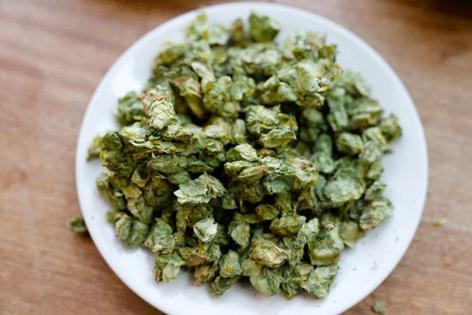
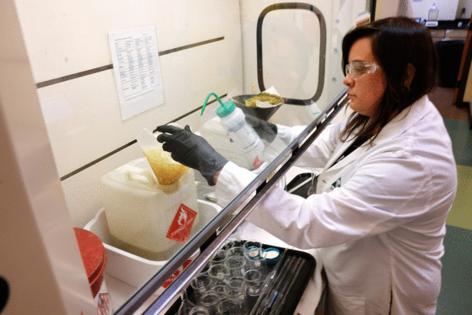
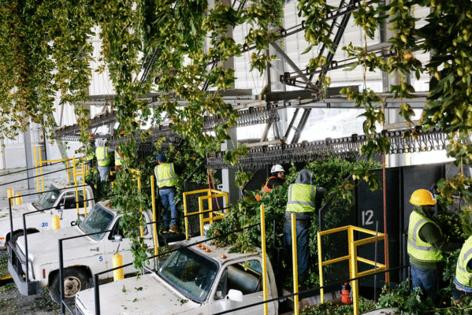
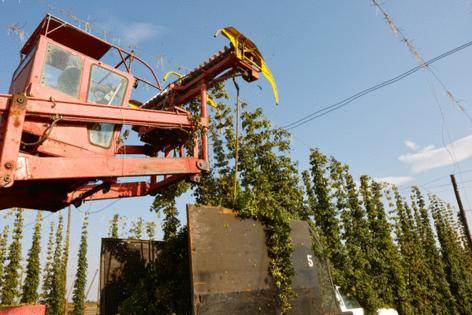
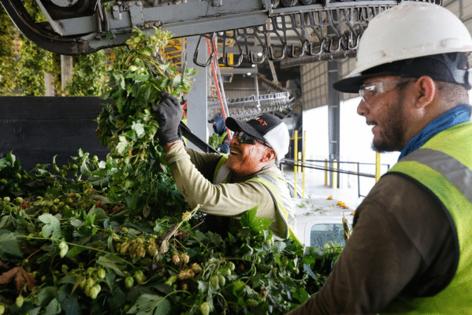
















Comments